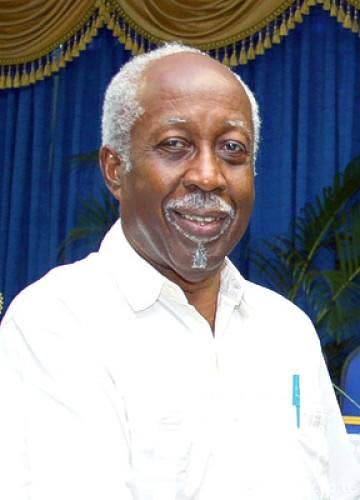The ghost returns

REGINALD DUMAS
Part II
AT A SYMPOSIUM on the construction industry in October 1979, Winston Riley, now chairman of the Private Sector/Civil Society Group on Public Procurement, frontally addressed the matter of government-to-government arrangements.
He faulted “our inability to look after our own interest,” and listed a litany of negatives: “almost no cost controls on the projects;” “almost non-existent” transfer of technology; “lobbying with its undercurrents of corruption;” and so on.
Concerning one project, he said: “We have virtually prostituted ourselves before the British, and no doubt we shall be treated like all prostitutes are.” (Disclaimer: I don’t know how the British treat prostitutes, of whatever kind.)
From my own observation, we were basically leaving nearly everything up to the other governments, which couldn’t believe their good luck. We were in essence participating in being ripped off by them.
In February 1982 the George Chambers administration appointed a committee, chaired by Lennox Ballah, a distinguished permanent secretary, to review the arrangements and make recommendations. Among the several recommendations in the committee’s March 1982 report were the following, which nearly 40 years later are still relevant:
(a) the “government-to-government formula should be [used] only…where the expertise/technology required is owned by the foreign government itself…[and offers should be invited from] more than one government;”
(b) “open competitive bidding…should be used to secure the best offer for the implementation of projects;”
© “adequate and effective project management systems should be put in place for each project;”
(d) “executing agencies should…review and assess the effectiveness of their own in-house monitoring capability;”
(e) “precise details of the expertise/technology to be transferred should be spelled out in the contract document.”
Our parliamentarians would do well to read the report (and Riley’s 1979 contribution) before their upcoming debate.
The committee’s recommendations bring me back to Minister Imbert. If it is serious, any party to contract discussions is constantly mindful of its best interest. Riley’s 1979 complaint shows that TT wasn’t serious at the time – money could therefore be wasted because money was deemed to be “no problem.” It is a view which, to my continuing astonishment, was later to afflict us when the oil price soared again. We had learned nothing.
These days in particular, we have to be extremely serious, and I must say I’m at a loss to understand Imbert’s reasoning. He says it will be “very difficult to enter into an agreement…with a sovereign government…and then subject that government to the Public Procurement Act because the other government may simply not be willing to do that.”
But surely you don’t finalise an agreement with another party “and then” seek to “subject” that party to a new condition? (And how does TT “subject” anyone to anything?) In my time, I participated in enough meetings and discussions on behalf of TT to be able to say now that any issue of monitoring and management must form part of the negotiations on the intended agreement, and of the signed agreement itself.
And those negotiations must be closed-door. Prior, public speculation by one side on what the other side “may” do or want sends a message of indecisiveness, even weakness, which will be pounced on by that side. It’s a hard, unforgiving world, and international relations are about interests, not friendship. What are our interests?
What could Imbert possibly mean when he says that if “there is a conflict between our procurement rules and (the other government’s) procurement rules, then the rules of the other sovereign state would apply?” That we limply, in advance and publicly, abdicate our responsibility and leave everything in this area to the other party? Although, concessional loan from that party or not, it is we who are paying? Is that in our best interest? Aren’t we too a “sovereign state?” Or has the carefree ghost of the 1970s and 80s returned to haunt us?
Further, in this age of constant attention to the centrality of transparency, accountability and good governance, the international financial institutions whose goodwill we seek would not be at all pleased with us if we didn’t insist on strong safeguards written into our agreements.
Those institutions, and Western governments and investors, also pay close attention to the Corruption Perceptions Index (CPI) of Transparency International. The latest CPI does not cast a shining light of approval on us.
Our duty and responsibility are always to protect, and try to advance, the best interests of TT. In contract arrangements such as the one we’re talking about now, who is best placed to look after those interests? The other party? Our political directorate? Public servants instructed by our political directorate? Or our independent Office of Procurement Regulation? What could the correct answer be, I wonder?


Comments
"The ghost returns"